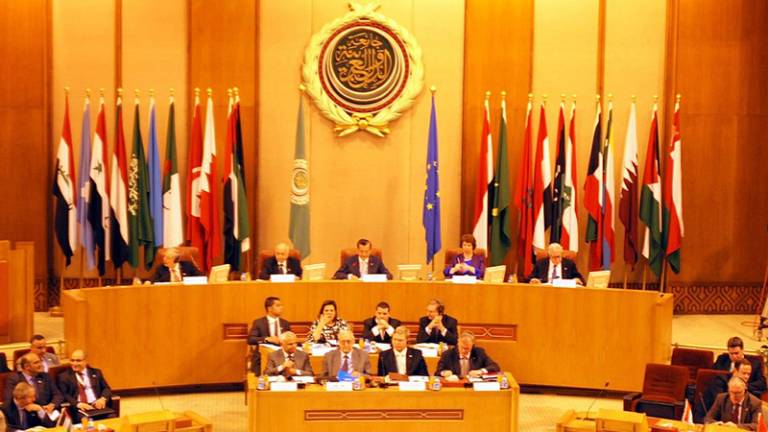
A decade after the start of the Syrian revolution against authoritarian rule and the suspension of Syria’s membership in the League of Arab States, the country is all but assured of a triumphant return to its seat in the organization. President Bashar al-Assad seems to have weathered whatever seeming outrage the current Arab political order showed over the wanton killing spree his regime perpetrated against its own people. To be sure, this return would not only be a testament to the resilience of the Syrian authoritarian project but also proof that Arab regimes are incapable of punishing one of their own, even if that regime was bent on staying in power no matter the extent of human rights violations it commits or the grievous human toll on its population.
According to the latest figures released by the United Nations, at least 350,000 Syrian civilians and combatants have died throughout the country over the last decade of intense strife. Many more have not been accounted for. The London-based Syrian Observatory for Human Rights, which has documented and reported on casualties since the beginning of the conflict, estimated that about half a million combatants and civilians have either died or were missing as of December 2020. Another group, the Violations Documentation Center, counted some 226,000 deaths, mostly of civilians, and placed the largest blame on the regime for the killings, followed by opposition forces and other actors. Moreover, 13 million Syrians are either internally displaced persons or refugees outside the country, or looking for asylum where they can.
It is precisely this regime that perpetrated such atrocities against its people that the Arab League may very well welcome back within its ranks in its upcoming summit meeting in Algeria. This year’s host country is on record not only as the one objecting to the original suspension of Syria in 2011 but also as a most vocal advocate of its return. The last time the issue was debated was during the preparations for the 30th regular summit of the league in Tunisia in 2019, when full consensus on restoring Syria’s membership could not be reached. But today, there appear to be no more trepidation or objections to the prospect of such a return.
An additional factor facilitating such a restitution has to do with Jordan’s effort to play a regional political and economic role. On September 29th, Jordan reopened the Jaber crossing (known as the Nasib crossing on the Syrian side) at the border with Syria. The action was justified as helping the struggling Syrian and Jordanian economies within an integrated regional network of countries. On October 3rd, Assad spoke by phone to Jordan’s King Abdullah II and discussed bilateral relations. These developments came as Jordan, Iraq, and Egypt are increasing their economic and security cooperation following a series of meetings between their leaders over the last two years. It is not hard to see Syria being added as a fourth actor in such an economic bloc, considering that Iraq and Egypt are enthusiastic about accepting Syria back into the Arab League.
Another factor for Syria’s normalization in Arab eyes relates to the latest project to assist Lebanon in securing energy supplies for its poor and dilapidated power sector. Following a complicated suggestion by none other than the US ambassador in Lebanon, Dorothy Shea, Lebanon may be able to receive Egyptian gas through the Arab Gas Pipeline that runs through Syria. Such a prospect may run contrary to prohibitions on dealing with Syria in the US Caesar Act of 2019, but apparently there may be a way to sidestep the impediments so that Lebanon may be helped out of its dire situation. At any rate, should such a proposal gain traction, Syria will by default be given the recognition it seeks from the Arab world.
The question that begs an answer is, what can the Arab world tangibly gain from ending its suspension of the Syrian regime’s membership in the Arab League? After all, Syria continues to be the prize Russia and Iran won after a decade of war and destruction. While Russia has won an advanced strategic position in the eastern Mediterranean and wider region, Iran has upheld its pivotal role not only in Damascus but also in Baghdad and Beirut. The militias it supports, especially Hezbollah, have greatly contributed to the survival of the Assad regime, and Tehran is in no mood to relinquish whatever influence it has in Syria. Besides, and despite the absence of a clear American strategy for Syria, the United States has once again asserted that it is not going to change its position on Bashar al-Assad; indeed, it continues to call for a political solution that paves the way for transition from authoritarian rule.
In other words, there may not be much material gain from rehabilitating the Assad regime. Perhaps the only achievement of the last ten years is the knowledge that the Arab political order has prevailed in protecting one of its own from accountability, even after this regime killed hundreds of thousands of the citizens it was supposed to protect and destroyed any hope for change in the country. With Arab countries maintaining a suspicious silence about President Kais Saied’s current attack on Tunisia’s democratic process, the prospect of fully rehabilitating Assad would provide the final proof that the Arab counterrevolution has succeeded beyond any authoritarian’s wildest dreams.

